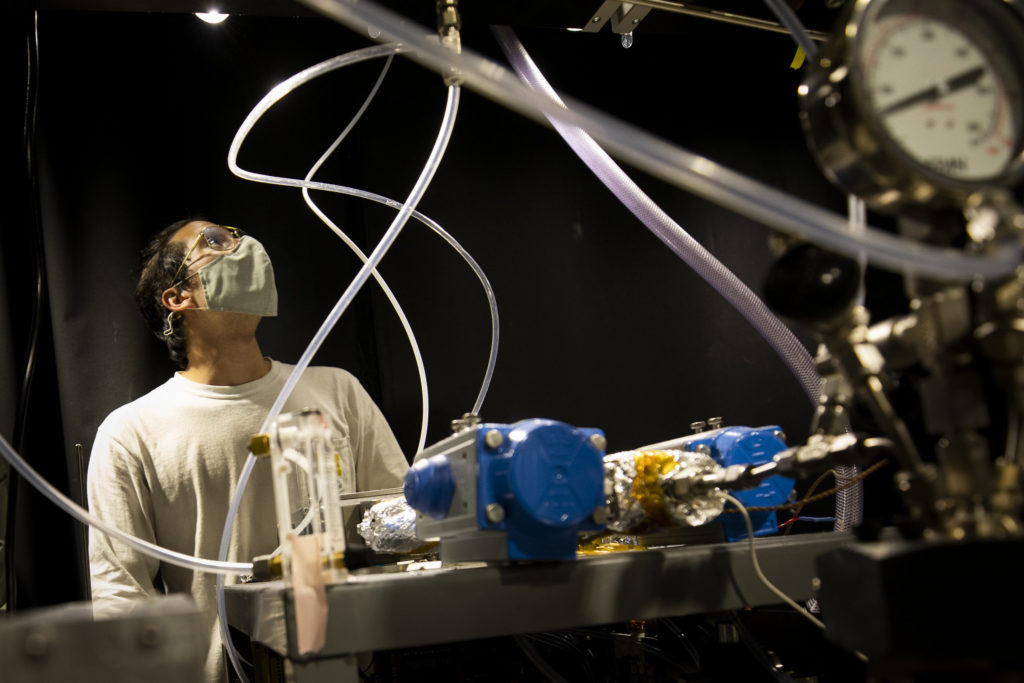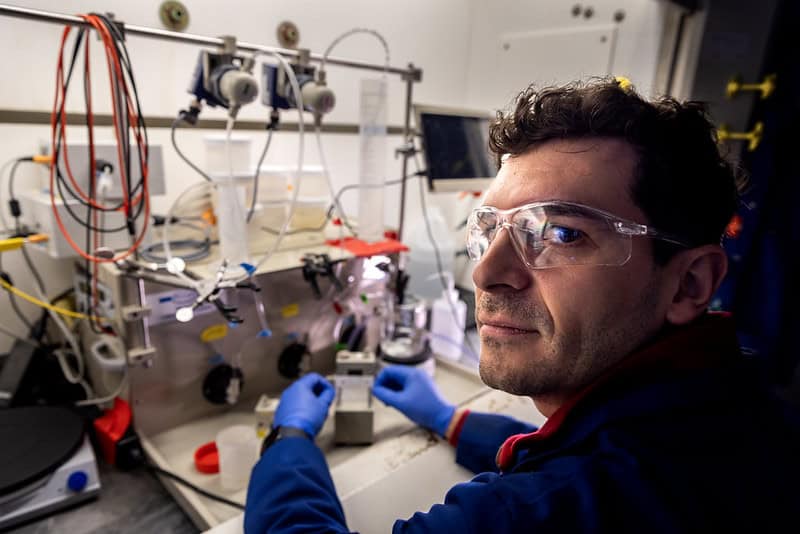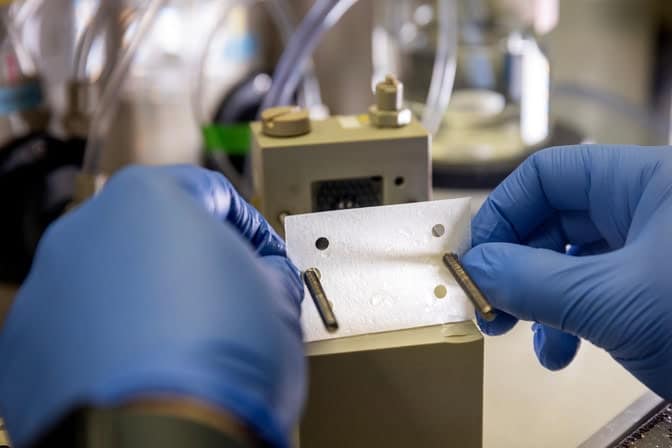Engineering Net Zero
A strategic direction for research
We are leaders in taking a molecular-level approach to designing distributed, sustainable systems that solve energy and environmental problems on a global scale.

Meeting the challenge
Today our world is faced with one of the greatest challenges ever undertaken by humankind: to drastically slow, and eventually stop, the warming of our planet. Engineering our way to a net zero emission of carbon equivalents requires a myriad of approaches across the energy landscape, from transportation and energy electrification to the capture and use of CO2 in chemical production to sustainable food and water production.
Chemical engineers are driven to answer a fundamental question: how do atoms and molecules move, transform, and separate? In Michigan ChE, we are answering this question by taking a molecular-level approach to designing solutions to complex, global problems. Our research is enabling huge leaps in sustainable, net zero innovation by combining breakthroughs in heterogeneous catalysis, advances in atomic characterization, computing and AI and a systems level, economics-informed life-cycle approach.
Imagine a world where:
- Energy storage needs are met with affordable, distributed, on-demand batteries.
- We can capture and convert CO2 into green fuels and chemicals on a single device.
- The intersection of food production, clean water, and essential energy is met in a sustainable, systematic approach.
That world is on its way thanks to Michigan chemical engineers.
WHY MICHIGAN
The prowess of a $1.86 billion (FY 2023) research university with over 100 graduate programs in the top 10 positions the University of Michigan as an interdisciplinary organization where researchers can work together to solve the complex problems that stand in the way of a Net Zero world.
Our collaborations across campus with U-M’s renowned battery lab, Graham Sustainability Institute, School for the Environment and Sustainability, as well as the researchers working on electric vehicles are just a few of the partners on campus that enhance our holistic research approach.
100
Top 10 Graduate Programs
$1.86B
Research Volume
$130M
Upcoming Electric Vehicle Center (FY2023)
OUR RESEARCH:
PAVING THE WAY FOR BETTER BATTERY CHEMISTRY
Flow batteries are one of the methods under consideration for storing intermittent sources of renewable electricity, such as solar and wind power. Our researchers have discovered why flow batteries using the metal cerium in a sulfuric acid electrolyte fall short on voltage, paving the way for better battery chemistry. Cerium could store energy at a relatively high voltage, meaning more energy per metal ion, and at low cost.
Understanding a cerium quirk could help advance grid-scale energy storage
IMPROVING FERTILIZER PRODUCTION TO REDUCE CO2
The production of the fertilizer urea is one of the largest carbon dioxide emitters in the chemical industry, but it doesn’t have to be that way. Our researchers are exploring a new, more sustainable approach for producing urea will be tested at the University of Michigan. This process, known as co-reduction, directly consumes carbon dioxide as well as nitrate, which is among the most prevalent wastewater pollutants in the world.
$1.3M to improve urea production and reduce carbon dioxide emissions
CUTTING SOLAR ENERGY COSTS BY IMPROVING HEAT-TRAPPING MATERIALS
To decarbonize industrial heat—a major contributor to global greenhouse gas emissions—and advance a form of solar power that’s cheaper to store, our researchers are developing a manufacturing strategy for a material that lets in sunlight while preventing heat from escaping. The team plans to manufacture an array of aerogel tiles for use in a four-meter long parabolic trough—the standard size for a single trough segment in today’s solar thermal plants. If successful, the approach should be easily scalable.
Recent news in NET ZERO:
-
Faculty Profile: Dr. Jovan Kamcev – Advancing Membrane Science for a Sustainable Future
First in our junior faculty profile series, we feature the exceptional membrane research of Jovan Kamcev.


